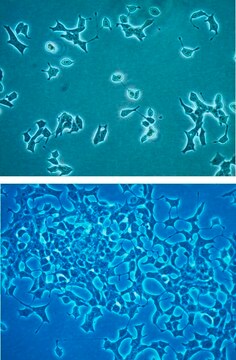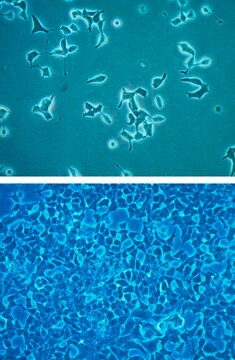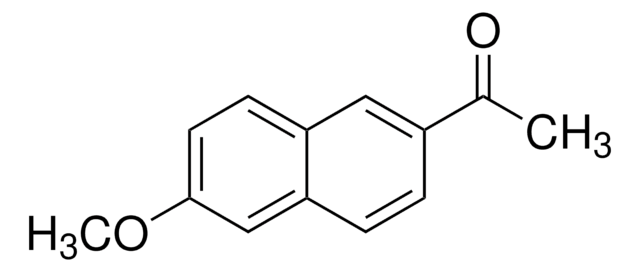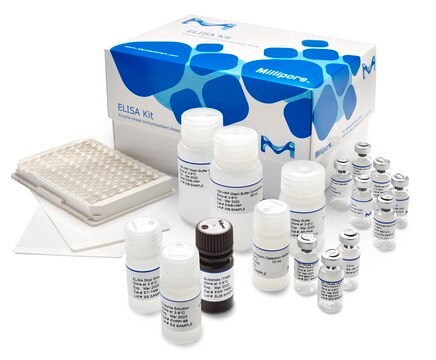SCC491
INS-1E Rat Insulinoma Beta Cell Line
Synonym(s):
beta cell line;rat insulinoma cell line;pancreas cell line;islet beta cell line
Sign Into View Organizational & Contract Pricing
All Photos(6)
About This Item
UNSPSC Code:
41106514
Recommended Products
biological source
rat
Quality Level
packaging
vial of ≥1X10⁶ cells
manufacturer/tradename
Millipore
technique(s)
cell based assay: suitable
cell culture | mammalian: suitable
shipped in
liquid nitrogen
storage temp.
−196°C
Cell Line Description
Diabetes is a disease characterized by prolonged high blood glucose levels due to low production of insulin by the pancreas, or by cells no longer properly responding to insulin. Failure of islet beta cells of the pancreas in Type 2 diabetes occurs when islets are unable to maintain β cell compensation for insulin resistance. The failure is progressive, which leads to dysfunctional, de-differentiated β cells and loss of β cell mass secondary to apoptosis.Beta-cell models are therefore essential tools for the study of diabetes. In many cases, the use of primary cells is preferred—but in vitro studies require large quantities of cells, which may make the use of primary cells more challenging, and primary cells typically also inconveniently contain mixed populations of cells. A variety of rodent-based beta-cell models are available, but many of these models are less than ideal due to improper response to glucose, poor differentiation, and low insulin content.ReferencesMerglen A, Theander S, Rubi B, Chaffard G, Wollheim CB, Maechler P. 2004. Glucose Sensitivity and Metabolism-Secretion Coupling Studied during Two-Year Continuous Culture in INS-1E Insulinoma Cells. Endocrinology. 145(2):667–678.
Application
INS-1E cells are verified to be of rat origin and negative for mouse, human, Chinese hamster, Golden Syrian hamster, and non-human primate interspecies contamination, as assessed by a Contamination Clear panel by Charles River Animal Diagnostic Services.
Cells tested negative for infectious diseases against a Mouse/Rat Comprehensive CLEAR panel by Charles River Animal Diagnostic Services.
Cells tested negative for infectious diseases against a Mouse/Rat Comprehensive CLEAR panel by Charles River Animal Diagnostic Services.
Features and Benefits
INS-1E rat insulinoma cell line maintains notable differentiation to a stable beta-cell phenotype achieved by selection for high insulin secretion. Cells from the parental INS-1 pancreatic β-cell line that produced high insulin content as well as a proper secretory response to glucose were isolated to become the INS-1E cell line. This presents a significant improvement for a beta-cell model due to its capability for beta-cell differentiation and stability over many passages.
Storage and Stability
INS-1E rat insulinoma cells should be stored in liquid nitrogen until use. The cells can be cultured for at least 10 passages after initial thawing without significantly affecting the cell marker expression and functionality.
Other Notes
This product is intended for sale and sold solely to academic institutions for internal academic research use per the terms of the “Academic Use Agreement” as detailed in the product documentation. For information regarding any other use, please contact licensing@milliporesigma.com.
Disclaimer
Unless otherwise stated in our catalog or other company documentation accompanying the product(s), our products are intended for research use only and are not to be used for any other purpose, which includes but is not limited to, unauthorized commercial uses, in vitro diagnostic uses, ex vivo or in vivo therapeutic uses or any type of consumption or application to humans or animals.
Storage Class Code
10 - Combustible liquids
WGK
WGK 3
Flash Point(F)
Not applicable
Flash Point(C)
Not applicable
Certificates of Analysis (COA)
Search for Certificates of Analysis (COA) by entering the products Lot/Batch Number. Lot and Batch Numbers can be found on a product’s label following the words ‘Lot’ or ‘Batch’.
Already Own This Product?
Find documentation for the products that you have recently purchased in the Document Library.
Our team of scientists has experience in all areas of research including Life Science, Material Science, Chemical Synthesis, Chromatography, Analytical and many others.
Contact Technical Service





